Successful Yes vote for Indigenous voice to parliament and ‘all Isaiahs will profit’
Yunupingu found a way to speak to power. He had a voice. Now Anthony Albanese says he wants the voice to empower communities the same way the great Indigenous leader lifted up his people.
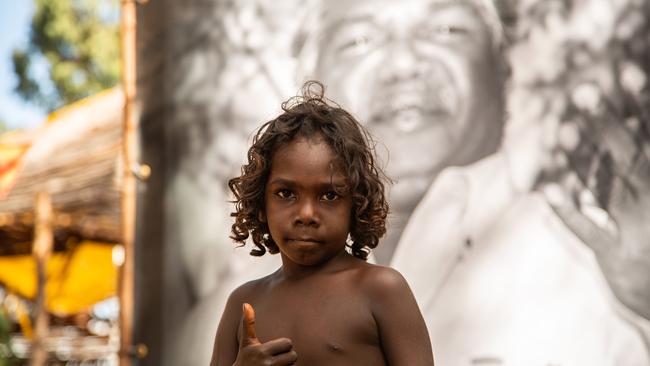
Isaiah Gurruwiwi is inheriting a resurgent Yolngu authority.
When his grandfather Yunupingu was not much older than Isaiah is now, Swiss bauxite miners came to the Yolngu’s traditional lands in northeast Arnhem Land, and their objections – bark petitions – were ignored and instead hung decoratively in Parliament House.
By the time Yunupingu died in April, his people owned their own mine.
Thanks to Yunupingu, Isaiah and his clan own a range of businesses, they run their own school in partnership with Barker College in Sydney and Yolngu clans have control and responsibility for the community they established at Gunyangara. During six decades on the frontline of the Indigenous rights movement, Yunupingu found a way to speak to power. He had a voice.
The annual Garma festival on Friday was in part a celebration of the way he used it to provide for his people and give them a level of autonomy.
“He fed us. He fed his tribe and his family,” his brother Djunga Djunga Yunupingu said at a memorial at Garma.
“He left us full with energy, strength and power.”
Now Anthony Albanese says he wants the voice to parliament to empower communities across the country in the same way Yunupingu’s voice lifted up the people of the Gove peninsula.
“Through a voice we can ensure that the Garma spirit of learning and co-operation and shared progress is not confined to this one part of Australia and one group of Australians, for four days a year,” the Prime Minister will say at the festival on Saturday.
“It is shared with our nation, to serve our whole nation.”
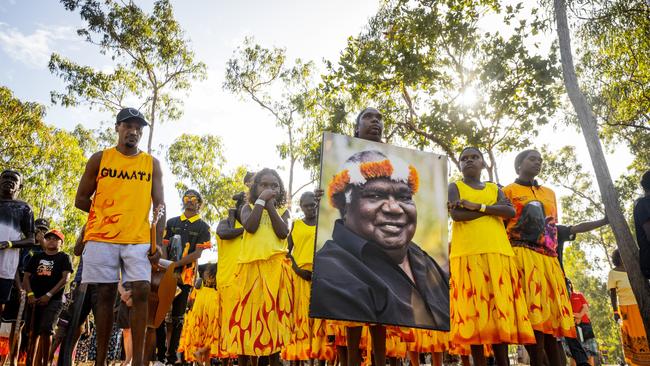
The question that hung over the Garma festival on Friday – where previous prime ministers on both sides came to hear Yunupingu talk – was whether Mr Albanese’s plan can work.
He offered the most detail yet of how he believed local communities would channel their messages to a national voice when he pointed to the Dilak Council as an example.
The government’s referendum working group agreed last year that groups that worked should not be replaced, meaning the Dilak Council comprising cultural leaders from 13 clan groups in northeast Arnhem Land could ultimately speak directly to the national voice about the matters most important to them.
Garma director Denise Bowden said: “Across the nation we think people can learn from our strong law and cultural leadership.”
Mrs Bowden described the Dilak Council as a sophisticated cultural authority that was right for Yolngu people. She believed it could help the voice identify government waste and underperformance.
“The voice will be a dividing point for programs that work positively and those that have a proven failed track record.” she said.
It is a message repeated by other leaders who have come from across Australia to discuss the voice, policy, failures and successes at Garma.
Among them is an alliance of Indigenous leaders from 12 regions across Australia called Empowered Communities that has been speaking directly to the government since 2015.
The members of the alliance see their successes as proof that a broader, national voice can work and is needed. Since Empowered Communities began, the federal government has made joint decisions about $147m in funding. Both sides say it has led to massive savings.
Cape York leader Fiona Jose said the Empowered Communities initiative showed Indigenous people were ready and willing to cut waste.
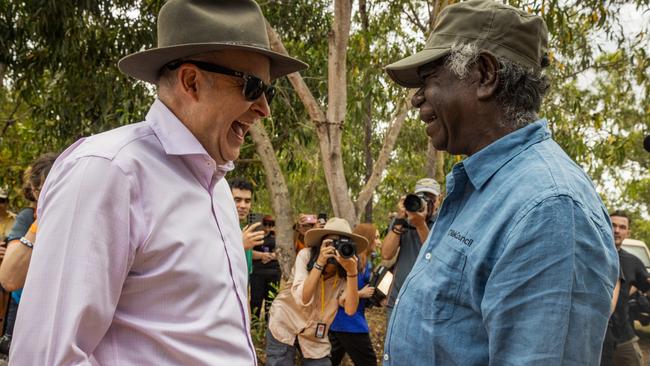
“We make tougher decisions with and for our people than government will ever be able to do … It’s possible because we’re doing it,” she said.
“We are leaders of our reform. We want impact … now we need a national voice to have impact.”
Kimberley Land Council chief executive Tyronne Garstone, also a member of Empowered Communities, said Indigenous communities were asking themselves how to help government dollars go further, firstly by making sure there was not duplication in service delivery.
“We just can’t go and take the low hanging fruit and remove all the non Indigenous services providers,” he said. “We also need to have scrutiny over our own (Indigenous) service providers to make sure if they are receiving the money they are doing the job well.”


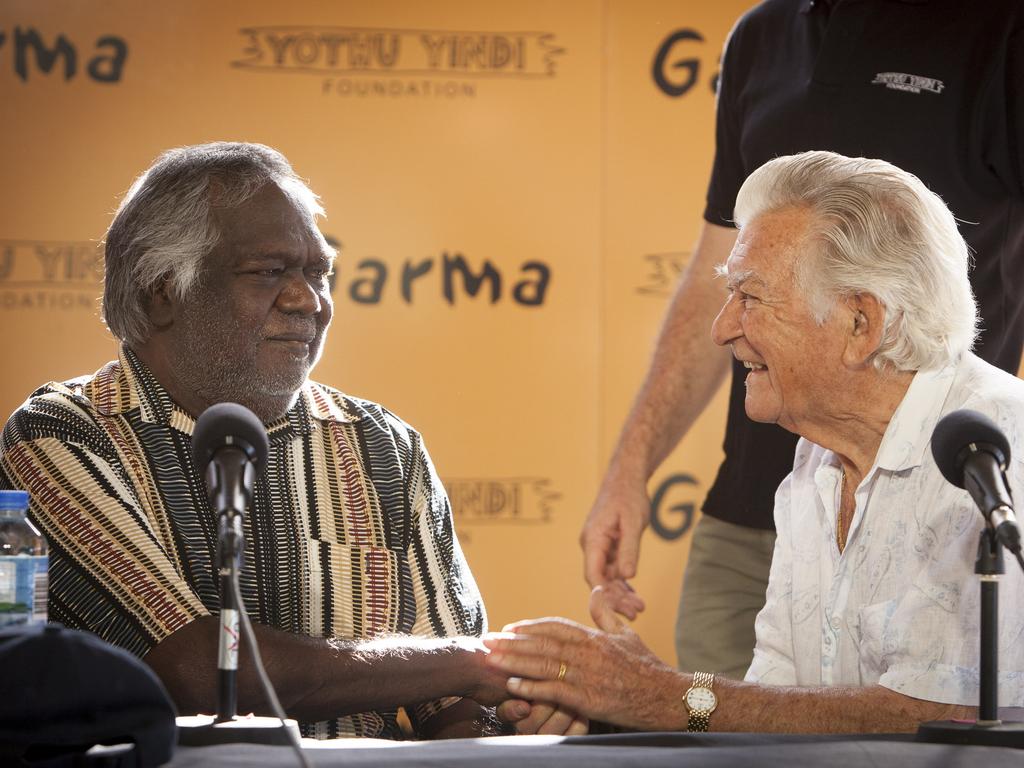
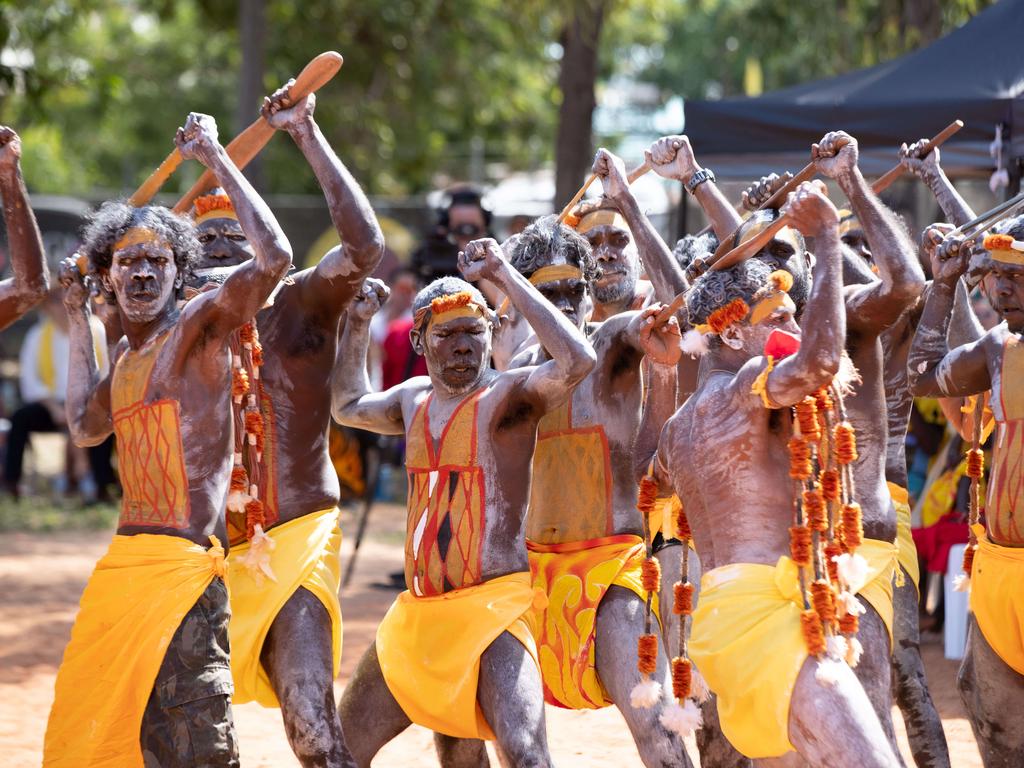
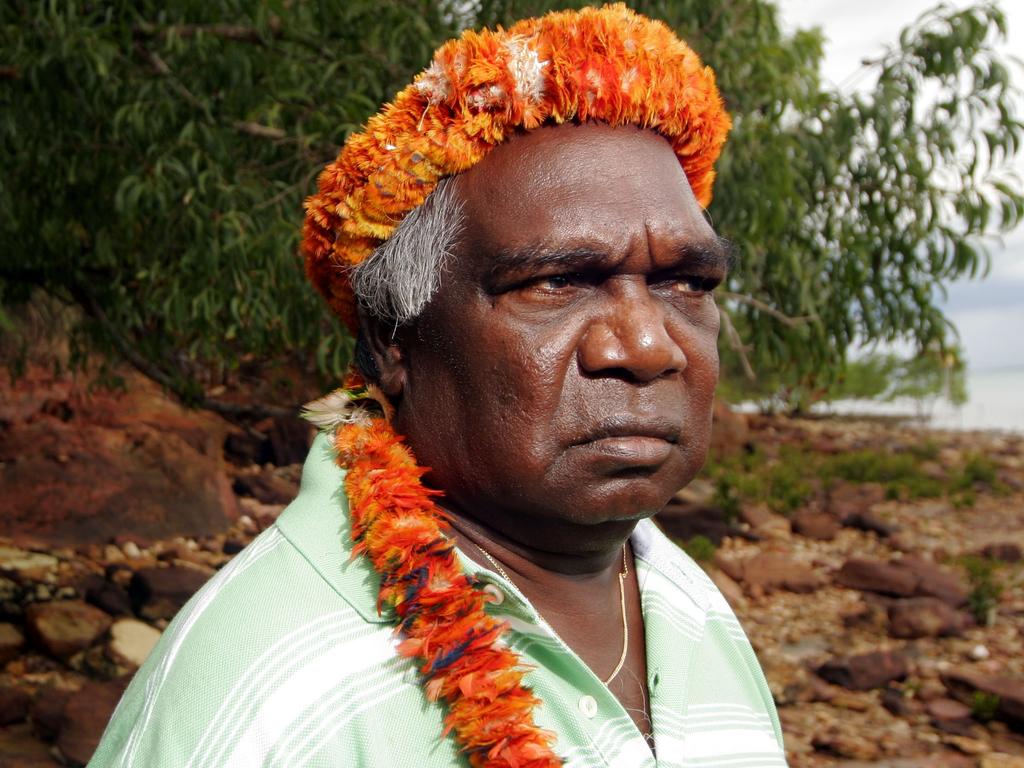



To join the conversation, please log in. Don't have an account? Register
Join the conversation, you are commenting as Logout